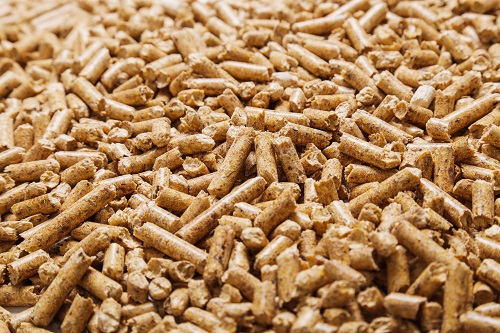Bagasse Briquette Production in Kenya

Overview
This business focuses on transforming sugarcane waste (bagasse) into eco-friendly charcoal briquettes for domestic and industrial use. Bagasse briquettes are in high demand due to rising environmental consciousness and the need for sustainable fuel alternatives.
Startup Costs
| Item | Cost (KES) | Description |
| Land Rental (1 acre) | 100,000 (per year) | Space for drying, processing, and storage. |
| Drying Equipment | 200,000 | Sun-drying racks or a dryer machine. |
| Crushing Machine | 150,000 | For crushing bagasse into fine particles. |
| Carbonization Furnace | 500,000 | Converts bagasse into charcoal at high heat. |
| Briquette Press Machine | 300,000 | For shaping briquettes into logs. |
| Packaging Materials | 50,000 | For branding and selling briquettes. |
| Transportation | 100,000 | For raw material collection and product delivery. |
| Initial Labor Costs (3 months) | 150,000 | For hiring skilled and semi-skilled labor. |
| Marketing | 10,000 | For advertising and market outreach. |
| Total | 1,550,000 | Initial setup costs. |
Market Potential
- Kenya
- Domestic Market: High demand from households, schools, restaurants, and industries transitioning from firewood and traditional charcoal to eco-friendly briquettes.
- Industrial Market: Manufacturing plants requiring sustainable heat energy sources.
- Export Market
- Regional Demand: Neighboring countries like Uganda, Tanzania, and Rwanda are increasingly adopting briquettes for sustainable energy.
- International Market: Europe and the Middle East have growing demand for eco-friendly fuel solutions.
Where to Sell and to Whom
- Local Market
- Target Customers: Urban households, schools, hotels, and bakeries.
- Retail Points: Supermarkets, hardware stores, and local markets.
- Export Market
- Target Clients: International eco-fuel distributors and sustainable energy companies.
- Channels: Partner with export agencies and attend trade expos.
Strategies to Access These Markets
- Local Market
- Partner with organizations like Kenya Renewable Energy Association (KEREA).
- Launch awareness campaigns in urban areas to highlight the cost and environmental benefits of briquettes.
- Distribute through established retailers like Carrefour and Naivas.
- Export Market
- Work with trade bodies like the Export Promotion Council of Kenya (EPC).
- Obtain certification for quality standards (e.g., KEBS, ISO) for credibility.
- Utilize platforms like Alibaba and African Trade Alliance to find buyers.
Profit Potential
- Production Cost: Approx. KES 20 per kg of briquettes.
- Selling Price: KES 50–80 per kg locally, KES 100–120 per kg for export.
- Profit Margin: 50%–80%.
Example: Producing 1 ton (1,000 kg) monthly can yield a profit of KES 30,000–60,000 locally and up to KES 100,000 for exports.
Yakazi’s Role and Support
- Manpower Recruitment and Training
- Yakazi can source skilled technicians for equipment operation and maintenance.
- Provide training programs on briquette production and business management.
- Supply Chain Optimization
- Facilitate connections with sugar factories (e.g., Mumias, Chemelil) for consistent bagasse supply.
- Source logistics personnel for raw material transportation and finished product delivery.
- Market Access and Networking
- Organize forums and networking events to connect producers with potential buyers.
- Showcase the business on Yakazi’s platform to attract local and international clients.
- Business Advisory Services
- Offer guidance on acquiring certifications like KEBS and ISO for quality assurance.
- Support grant and funding applications for sustainable energy initiatives.
Conclusion
Bagasse briquette production is a profitable and sustainable business in Kenya. Yakazi’s manpower solutions, market facilitation, and supply chain support can significantly enhance the business’s operational efficiency and market reach, ensuring profitability and growth both locally and internationally


Can one enter this business at the scale of Ksh 100,000/=